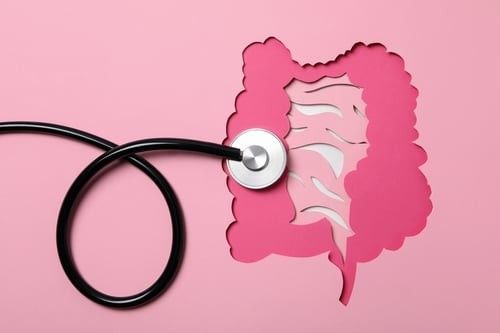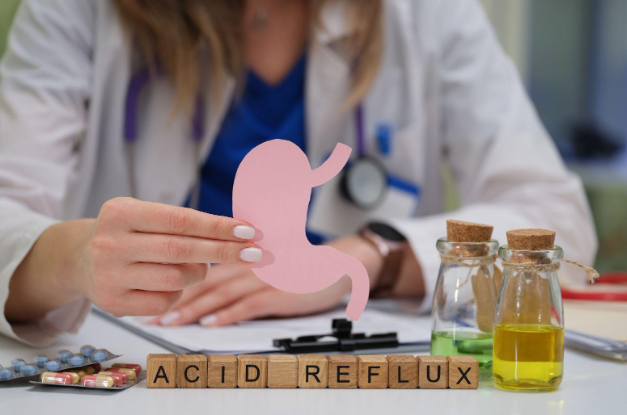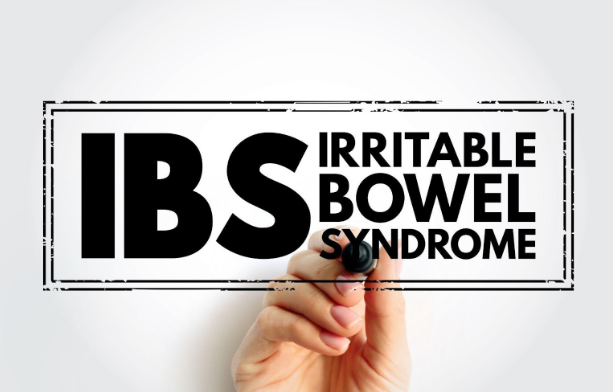How Summer Heat Affects Gastrointestinal Health

Summer is a time for fun, sun, and outdoor activities. However, the hot and humid weather can take a toll on our bodies, particularly our gastrointestinal (GI) tract. The GI tract is responsible for digesting food and absorbing nutrients from the food we eat. It also plays a crucial role in the immune system and overall health. Keep reading to learn more about how summer heat can affect our gastrointestinal health and what we can do to prevent it.
What Is Gastrointestinal Health?
Gastrointestinal (GI) health refers to the proper functioning of the digestive system, which includes the esophagus, stomach, small and large intestines, rectum, and anus. The digestive system is responsible for breaking down food into nutrients that can be absorbed by the body, eliminating waste products, and maintaining the balance of microorganisms in the gut.
To maintain good GI health, it is necessary to follow a balanced diet, exercise regularly, have proper hydration, and avoid smoking and excessive alcohol consumption. Common GI problems include indigestion, heartburn, constipation, diarrhea, and irritable bowel syndrome (IBS), among others. Regular checkups with a healthcare provider can help identify and treat GI issues before they become more serious.
How Summer Heat Affects Gastrointestinal Health
As summer approaches, we look forward to sunny days, warm weather, and outdoor activities. However, with the rising temperatures, comes the risk of dehydration, heat-related illnesses, and gastrointestinal issues.
Heat Stress and Dehydration
The most significant factor contributing to the summer heat's effects on gastrointestinal health is heat stress and dehydration. As the body loses fluids through sweat, this can lead to changes in bowel movements, constipation, and other digestive issues.
Changes In Diet and Eating Patterns
Many people tend to make changes in their diet and eating patterns during the summer season. They may consume more unhealthy foods, eat at irregular times, and consume more alcohol. These changes can contribute to digestive issues such as acid reflux, heartburn, and more.
Exposure to Foodborne Illnesses
Increased exposure to foodborne illnesses is another significant factor contributing to the summer heat's effects on gastrointestinal health. Warm temperatures can cause bacteria to multiply more quickly, increasing the risk of foodborne illnesses.
Impact of Air Conditioning and Indoor Environments
The impact of air conditioning and indoor environments on gut bacteria and digestive processes can also contribute to the summer heat's effects on gastrointestinal health. Air conditioning can cause dehydration and lead to imbalances in the gut microbiome, leading to digestive issues.
Indigestion
The summer also creates an impact on your digestive system. When the temperature rises, your body diverts blood flow to the skin to cool down. It leads to a decrease in blood flow to the digestive system. This decrease in blood flow can slow down the digestive process, leading to indigestion. Indigestion can cause discomfort, bloating, gas, and even nausea.
Diarrhea
Summer heat can increase the risk of diarrhea, which is caused by consuming contaminated food and water. The warm weather creates an ideal environment for bacteria and other pathogens to grow in food and water. When you consume contaminated food or water, the bacteria can cause diarrhea, leading to dehydration and other digestive problems. It is essential to practice proper food and water hygiene during the summer season to avoid diarrhea.
Constipation
On the other hand, the summer heat can also cause constipation, which is the opposite of diarrhea. Dehydration is one of the primary causes of constipation during the summer season. When you're dehydrated, your body absorbs more water from the stool, making it hard and difficult to pass. The lack of physical activity during the summer season can also lead to constipation. When you're inactive, your bowel movements slow down, leading to constipation.
Preventive Measures
Maintaining gastrointestinal health during the summer season requires a combination of preventive measures and effective symptom management strategies. Here are some of the most effective preventive measures.
Stay Hydrated
Staying hydrated is one of the most effective ways to maintain gastrointestinal health during the summer season. Drink plenty of water to replenish fluids that you lose due to sweating. Avoid sugary drinks and alcohol, as they can worsen dehydration. You can also consume fruits and vegetables with high water content like watermelon, cucumber, and lettuce to stay hydrated.
Avoid Overeating
Overeating can put a strain on the digestive system, leading to digestive issues such as acid reflux, heartburn, and more. Avoid overeating and consume smaller, more frequent meals throughout the day.
Be Mindful of Food Choices
Be mindful of food choices and opt for fresh, whole foods whenever possible. Avoid highly processed and fried foods that can be difficult to digest, and consume plenty of fruits and vegetables for fiber and nutrients.
Practice Good Food Safety
Practicing food safety is essential in preventing foodborne illnesses during the summer season. Always wash your hands and any fruits and vegetables before consumption, and store foods properly to prevent contamination.
Limit Alcohol Consumption
Alcohol can irritate the gastrointestinal tract and exacerbate existing gastrointestinal conditions. During the summer, it can be tempting to indulge in alcoholic beverages at social events and gatherings. However, excessive alcohol consumption can lead to dehydration, inflammation, and the exacerbation of gastrointestinal symptoms. To manage your alcohol intake, it is important to limit the number of drinks you have, alternate between alcoholic and non-alcoholic beverages, and choose lower-alcohol options such as light beer or wine spritzers. It is also important to avoid mixing alcohol with sugary or acidic mixers, as these can further irritate the stomach lining.
Avoid Trigger Foods
If you have a gastrointestinal condition such as Irritable Bowel Syndrome (IBS), acid reflux, or inflammatory bowel disease (IBD), certain foods can trigger symptoms such as bloating, gas, diarrhea, and constipation. During the summer, it is important to be mindful of your food choices and avoid trigger foods that can exacerbate your symptoms. Common trigger foods include spicy, fatty, or greasy foods, citrus fruits, caffeine, and carbonated beverages. Instead, opt for foods that are easy to digest, such as lean proteins, whole grains, fruits, and vegetables.
Incorporate Probiotics and Prebiotics
Incorporating probiotics and prebiotics into your diet can help to maintain a healthy gut microbiome, which is crucial for digestive health. Consume foods such as yogurt, kefir, and sauerkraut, and supplement with prebiotics such as inulin and oligofructose.
Stay Active
Regular physical activity can help maintain gastrointestinal health during the summer season. Exercise can promote healthy bowel movements and reduce the risk of digestive issues such as constipation.
Get Enough Sleep
Lack of sleep can affect digestion and worsen gastrointestinal issues. Getting enough sleep can help maintain overall digestive health.
Practice Safe Food Handling
Safe food handling is essential to preventing gastrointestinal infections during the summer season. Wash your hands before handling food, cook food to the appropriate temperature, and avoid cross-contamination by separating raw and cooked foods.
Seek Medical Attention If Necessary
If gastrointestinal symptoms persist or worsen, it is important to seek medical attention. A healthcare provider can offer advice and treatment to help manage the symptoms.
Tips for Managing Gastrointestinal Issues
If you are experiencing any symptoms of gastrointestinal issues, you should consider incorporating the following tips into your daily life to alleviate the discomfort.
Wear Loose-Fitting Clothing
Wearing loose-fitting clothing can help during the summer season. Tight clothing can put pressure on the abdomen, leading to symptoms such as bloating and acid reflux.
Practice Sun Safety
Practicing sun safety is important. Overexposure to the sun can lead to dehydration, which can worsen the symptoms and lead to constipation and diarrhea.
Monitor Your Symptoms
Monitoring your symptoms can help manage gastrointestinal issues during the summer. Keep track of the frequency and severity of your symptoms, and speak with a healthcare professional if your symptoms worsen or persist.
The summer heat can have a significant impact on our gastrointestinal health, leading to a range of uncomfortable symptoms and digestive issues. However, by taking proactive measures to maintain our gut health during the summer months, we can minimize the risk of gastrointestinal problems and enjoy the season to the fullest. Whether it's through staying hydrated, eating a healthy and balanced diet, avoiding trigger foods, practicing sun safety, or managing stress levels, there are plenty of simple but effective steps we can take to keep our digestive systems healthy. By prioritizing our gastrointestinal health and making mindful lifestyle choices, we can feel our best and make the most of the summer season.
Looking for expert gastroenterology care in Louisiana? Turn to the experienced team at Northlake Gastroenterology. Our
board-certified gastroenterologists offer comprehensive care for a range of digestive issues. Contact us today at
985-893-9592 or
985-542-1334 or schedule an
appointment, and take the first step towards better gut health. We look forward to serving you!
More Blogs












